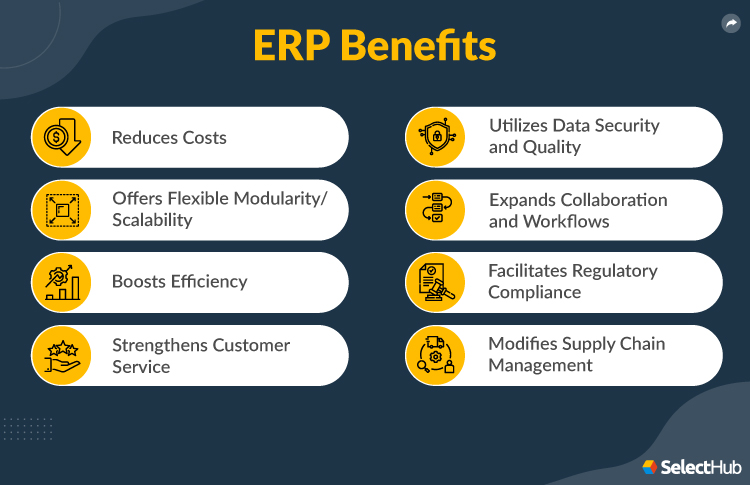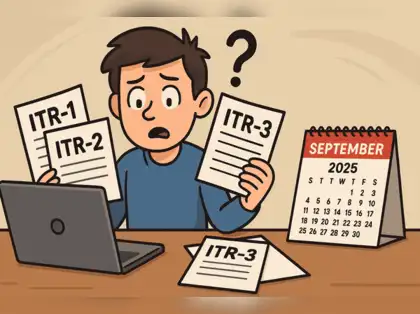The Benefits of ERP: Unlocking Efficiency and Growth
In today’s fast-paced business landscape, organizations are constantly seeking ways to streamline their operations, enhance productivity, and achieve sustainable growth. One powerful solution that has emerged to address these challenges is Enterprise Resource Planning (ERP) systems. In this article, we will explore the numerous benefits of ERP and how it can revolutionize your business.
Improved Operational Efficiency
Implementing an ERP system can significantly improve your organization’s operational efficiency. By integrating various departments and functions into a single, unified platform, ERP eliminates the need for multiple standalone systems and manual data entry. This streamlines processes, reduces duplication of efforts, and minimizes errors.
With ERP, employees can access real-time information, such as inventory levels, production schedules, and customer orders, from a centralized database. This empowers them to make informed decisions quickly, respond to customer demands promptly, and optimize resource allocation. As a result, your organization can operate more efficiently, reduce costs, and improve customer satisfaction.
Enhanced Collaboration and Communication
Effective communication and collaboration are vital for the success of any organization. ERP systems facilitate seamless communication and collaboration by providing a centralized platform for sharing information, documents, and data across departments.
With ERP, employees can collaborate on projects, track progress, and share updates in real time. This eliminates the need for lengthy email chains, manual file transfers, and disjointed communication channels. By fostering collaboration, ERP promotes teamwork, improves decision-making, and accelerates project completion.
Streamlined Financial Management
Financial management is a critical aspect of running a successful business. ERP systems offer robust financial management capabilities that enable organizations to streamline their accounting processes and gain better control over their finances.
With ERP, you can automate routine financial tasks, such as invoicing, billing, and financial reporting. This not only saves time but also reduces the risk of errors. Additionally, ERP provides real-time visibility into your financial data, allowing you to monitor cash flow, track expenses, and generate accurate financial statements. By improving financial management, ERP empowers organizations to make data-driven decisions and drive profitability.
Increased Customer Satisfaction
Delivering exceptional customer experiences is crucial for building strong, long-lasting relationships. ERP systems play a pivotal role in enhancing customer satisfaction by enabling organizations to deliver personalized, timely, and efficient services.
With ERP, you can gain a 360-degree view of your customers, including their purchase history, preferences, and support interactions. This enables you to tailor your offerings to their specific needs, provide proactive support, and deliver a seamless omnichannel experience. By improving customer satisfaction, ERP helps organizations foster loyalty, drive repeat business, and gain a competitive edge.
Enhanced Decision-Making with Real-Time Insights
Timely and accurate information is crucial for making informed business decisions. ERP systems provide real-time insights and analytics, empowering organizations to make data-driven decisions quickly.
With ERP, you can generate customized reports, visualize key performance indicators, and analyze trends. This enables you to identify opportunities, mitigate risks, and optimize your business processes. By leveraging real-time insights, ERP helps organizations stay agile, adapt to market changes, and seize competitive advantages.

Enterprise Resource Planning (ERP) systems offer a multitude of benefits that can transform your organization’s operations and drive sustainable growth. From improved operational efficiency and enhanced collaboration to streamlined financial management and increased customer satisfaction, ERP empowers organizations to unlock their full potential.
By investing in an ERP system tailored to your organization’s unique needs, you can stay ahead of the competition, respond to market demands swiftly, and achieve long-term success. Embrace the power of ERP and experience the transformative benefits it brings to your business.
Frequently Asked Questions about the Benefits of ERP
1. What is ERP?
ERP stands for Enterprise Resource Planning. It is a software system that integrates various business processes and functions into a single platform to streamline operations and improve efficiency.
2. What are the key benefits of implementing an ERP system?
The key benefits of ERP include improved productivity, enhanced data accuracy, better decision-making, streamlined processes, cost savings, increased collaboration, and scalability.
3. How does ERP improve productivity?
ERP improves productivity by automating manual tasks, eliminating duplicate data entry, providing real-time information, and streamlining workflows. This allows employees to focus on more value-added activities.
4. Can ERP help in making better business decisions?
Yes, ERP provides real-time data and analytics that enable informed decision-making. It offers insights into various aspects of the business, such as sales, inventory, production, and finance, allowing managers to make data-driven decisions.
5. Does ERP help in reducing costs?
Yes, ERP helps in reducing costs by eliminating inefficiencies, optimizing inventory management, reducing manual errors, and improving resource allocation. It also enables better financial planning and control.
6. How does ERP streamline processes?
ERP streamlines processes by integrating different departments and functions, eliminating data silos, automating workflows, and providing a centralized database. This ensures smooth information flow across the organization and reduces manual effort.
7. Can ERP enhance collaboration among teams?
Yes, ERP enhances collaboration by providing a common platform for employees to share information, communicate, and collaborate on projects. It improves cross-functional coordination and facilitates better teamwork.
8. Is ERP suitable for small businesses?
Yes, ERP can be beneficial for small businesses as it helps in improving operational efficiency, reducing costs, and enhancing decision-making. There are ERP solutions available specifically designed for small and medium-sized enterprises.
9. Can ERP systems be customized to fit specific business needs?
Yes, most ERP systems can be customized to fit specific business needs. They offer various modules and functionalities that can be tailored to match the requirements of different industries and organizations.
10. Is scalability a benefit of ERP?
Yes, scalability is a benefit of ERP. As businesses grow and evolve, ERP systems can easily adapt and accommodate the changing needs, whether it’s adding new users, expanding operations, or integrating with other software.




